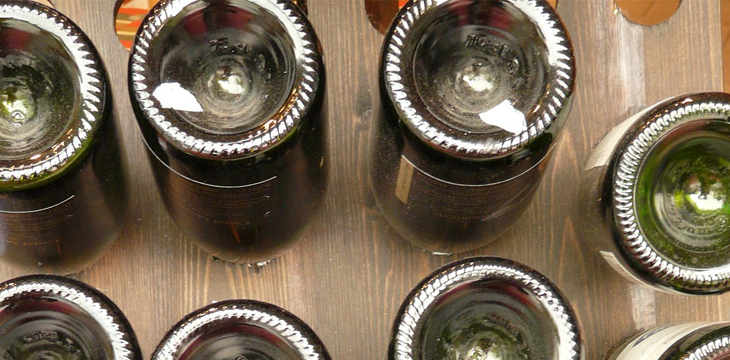|
Getting your Trinity Audio player ready...
|
After having to deal with the QuadrigaCX debacle, Ernst & Young (EY) representatives most likely got together for a drink when they had a “lightbulb” moment. Perhaps their proprietary blockchain solution could provide a great opportunity to protect wine and ensure its quality, authenticity and origin. Just like that, the major audit firm introduced a new blockchain-based wine tracking platform.
According to a company press release from last week, Tattoo was developed for Blockchain Wine Ptd. Ltd. It uses EY’s OpsChain blockchain solution that was first introduced late last year and which became the company’s flagship blockchain solution. It enables secure and private transactions on the Ethereum network using zero-knowledge proof (ZKP) technology.
Tattoo stands for traceability, authenticity, transparency, trade, origin and opinion. It was developed for consumer markets in Japan, China, Singapore, Thailand, and South Korea and is initially being used for European wines as they make their journeys to those Asian nations. Eventually, it will cover over 5,000 wine labels from Italy, Spain, France, South Africa, Australia, New Zealand, South America, and California.
The platform already found support in Asia through The House of Roosevelt, a major wine distributor. It will use the solution for its sales channels to hotels and restaurants and consumer retail outlets and is reportedly also considering using it to enable smart contracts for customer-to-customer sales of investment-grade wines.
Roosevelt President Tim Tse, who is also the chairman of Blockchain Wine Pte. Ltd., states, “By integrating blockchain to our platform, we will establish direct connections between wine producers, the distributors, and the companies involved in logistics, such as shipping and warehousing, with the possibility of payments to be managed electronically. As the market in China for European wine is expanding, there are many small and medium wine producers that want to reach this market, but there is no way for distributors—and their customers—to get information on product quality or authenticity. Because we are now bringing in more imported wines, and quality is extremely important to us and our customers, we wanted a way to equip our distribution network in Asia and worldwide and, ultimately, their consumers, with the information they need to help ensure the source, authenticity and availability of the product they are buying.”
EY’s global blockchain lead, Paul Brody, adds, “We are thrilled that Blockchain Wine Pte. Ltd. and The House of Roosevelt have chosen EY teams to build the solution for their global commerce network. The future of doing business will be through tokens and smart contracts and this network is at the forefront of this transformation.”
The platform uses ERC-721 tokens as its model to collect the requisite data and to facilitate further development of the tracking solution. The EY OpsChain platform is reportedly already used to track eggs, fresh produce and poultry.

 02-18-2026
02-18-2026 




